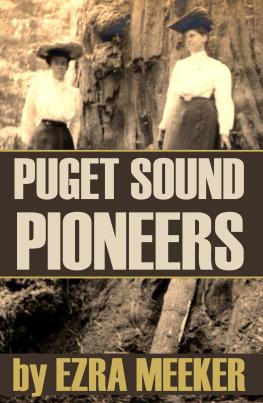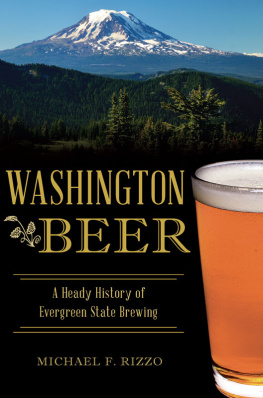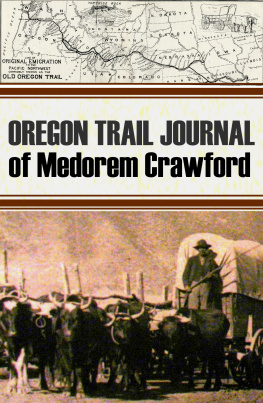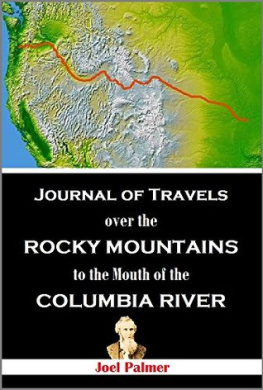
PUGET SOUND PIONEERS
By EZRA MEEKER
1905
COPYRIGHT 2016 BIG BYTE BOOKS
Discover more lost history from BIG BYTE BOOKS
EZRA MEEKER
Ezra Meeker made his fortune growing hops in the Puyallup Valley in the 19th century. His lovely Victorian mansion is open to the public today and should be on your list of places to visit if you come to the Northwest. It was Eliza Jane Meeker, his wife, who felt the family should live in a better home and she was the driving force behind it being built. The cost was $26,000, which is about $684,210. in 2015 dollars.
Those who love history have much to thank Old Ezra for. Not only did he write this memoir in 1905, he helped publicize the idea of preserving portions of the Oregon Trail. The year after this book was published through 1908, he made trips to retrace the trail by wagon, hoping to build monuments on the route. He went all the way to Washington, D.C. and met President Theodore Roosevelt.
Famously restless, energetic, and a natural leader, there seemed to be little activity in the Pacific Northwest of his day that he did not have a hand in. He helped found and served as president of the Washington State Historical Society . He was an adventurer, laborer, surveyor, longshoreman, farmer, merchant, community leader, civic builder, richest man in the state, world traveler, miner and writer. He made and lost millions. But he never stopped moving and seemed to have loved life.
Youll find a curious characteristic for a man of his day. He was extremely tolerant in his views on race, whether dealing with African-Americans or Native-Americans. At a time when people spoke of that race, Meeker made a point of stating in this book that an African-American man he knew was a credit to our race.
With charm and wit, Meeker tells the story below of a time when men and women threw aside all they knew and set out on adventure. By the end of this book, we think youll like him.
THE HISTORY OF A HISTORY
Four years ago today I arrived at the ripe age of three score years and ten, supposed to be the limit of life. Finding that I possessed more ambition than strength, and that my disposition for a strenuous life was greater than my power of physical endurance, I naturally turned to other fields of work, that condition of life so necessary for the welfare and happiness of the human race.
Many years before it had been my ambition to write our earlier experiences of pioneer life on Puget Sound, and not necessarily for the printer, but because I wanted to, but never could find time; and so when the change came and my usual occupation was gone, what else would I be more likely to do than to turn to my long delayed work, the more particularly being admonished that it must be done soon or not at all. And so, in a cheerful, happy mood, I entered again into the domain of pioneer life, and began writing. But this is not history, you will say. True, but we will come to that by and by.
I had, during the summer of 1853, with an inexperienced companion, in an open boata frail skiff built with our own handscrossed the path of Theodore Winthrop, spending more than a month on a cruise from Olympia to the Straits and return, while that adventurous traveler and delightful writer had with a crew of Indians made the trip from Port Townsend* to Fort Nisqually in a canoe. I had followed Winthrop a year later through the Natches Pass to the Columbia River and beyond, alone, except a companion pony that carried my sack of hard bread for food, the saddle blanket for my bed and myself across the turbulent rivers, and on easy grades. If Winthrop could write such a beautiful book, The Canoe and the Saddle , based upon such a trip, with Indians to paddle his canoe on the Sound, and with an attendant and three horses through the mountains, why should not my own experience of such a trip be interesting to my own children and their childrens children? And so I wrote these trips.
* Port Townsend today is one of the most charming Victorian towns in the west. It is a favorite weekend destination for Seattleites, just two hours away by ferry and road.Ed. 2016
Did you ever, when hungry, taste of a dish of fruit, a luscious, ripe, highly flavored apple for instance, that seemed only to whet but not satisfy your appetite? I know you have, and so can appreciate my feelings when these stories were written. I craved more of pioneer life experience, and so I went back to the earlier scenes, a little earlier onlyto the trip in a flat boat down the Columbia River from The Dalles to the first cabin, where Kalama town now stands; to the pack on our backs from the Columbia to the Sound; to the three times passing the road to and fro to get the wife and baby to tidewaterwhat a charm that word tidewater had for me with a vision of the greatness of opportunities of the seaboardand I may say it has never lost its charmof the great world opened up before me, and so we were soon again housed in the little cabin with its puncheon floor, cat-and-clay chimney, and clapboard roof; its surroundings of scenery; of magnificent forests and of constantly moving life, the Indians with their happy song and fishing parties.
All this and more, too, I wrote, every now and then getting over to the Indian question. How could I help it? We had been treated civilly, and I may say, kindly, by them from the very outset, when we, almost alone, were their white neighbors. I had been treated generously by some, and had always found them ready to reciprocate in acts of kindness, and so we had come to respect our untutored neighbors and to sympathize with them in their troubles. Deep troubles came to them when the treaty-making period arrived, and a little later upon all of us, when war came, to break up all our plans and amicable relations. As I began to write more about the Indians and their ways, a step further brought me to the consideration of our Territorial government and the government officials and their acts. It gradually dawned upon me this was a more important work than writing of humble individuals; that the history of our commonwealth was by far a more interesting theme, and more profitable to the generations to follow than recording of private achievements of the pioneer. It was but a step further until I realized that I was fairly launched upon the domain of history, and that I must need be more painstaking and more certain of my facts, and so then came a long rest for my pen and a long search of the records, of old musty letters, of no less old musty books, of forgetful minds of the pioneers left, and again I was carried away into the almost forgotten past.
An authoress once told me that she never named her book until after it was written. I could not then understand why, but I now do. While writing of pioneer life I could think of no other title than something like this: Pioneer Life on Puget Sound Fifty Years Ago , a pretty long title, but that was what the writing treated of. But when I got on the Indian question and came to realize what a splendid true story was wrapped up in the darkness of impending oblivion; how the Indians had been wronged; how they had fought for their homes and won them; how the chief actors had been sacrificed, but the tribes had profitedI again became enthusiastic over my theme and over my ready-made heroes, and before I realized it, lo! a new name took possession of my mind and rang in it until there was born the title, The Tragedy of Leschi .
When I come to think of it, that here were tribes that had never shed white mens blood until grim war came, and that then they refused to make war on their old neighbors, and that but one non-combatant settler had lost his life after the first day of frenzy of the Muckleshoot band at the massacre of White River, that here were men we called savages, fighting for a cause, but threw themselves on the track of the military arm of the government and not against helpless settlers. I had myself been in their power and remained unharmed.
Next page






